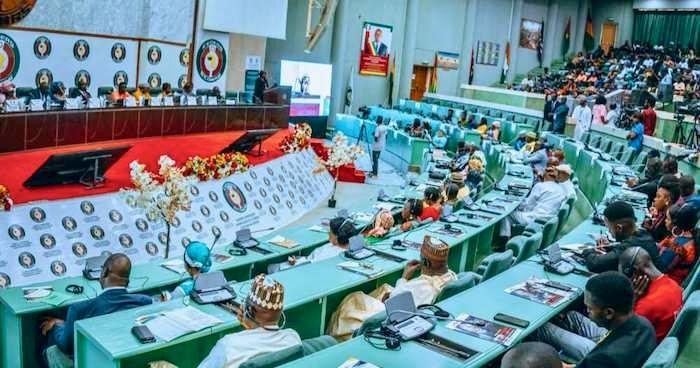By Mark Longyen
Dr Christian Odo, an Artificial Intelligence (AI) expert, has said that the ECOWAS Parliament must deploy AI technology tools to enhance its legislative efficiency, transparency, as well as oversight functions.
He stated this at the ECOWAS Parliament’s 2025 Second Extraordinary Session with the theme: “Harnessing Artificial Intelligence for Parliamentary Efficiency, Ethical Governance and Development in the ECOWAS Region,” on Tuesday, in Port Harcourt.
The News Agency of Nigeria (NAN) reports that the weeklong seminar aims to acquaint the regional parliamentarians with AI technology, and how to deploy it across all facets of lawmaking and oversight.
Odo, the Head of ICT Unit, National Institute for Legislative and Democratic Studies (NILDS), Abuja, spoke as a resource person on the topic: “AI For Parliamentary Efficiency and Oversight.”
He defined AI as the ability of a digital computer or computer-controlled robot to perform tasks commonly associated with intelligent beings, which should be harnessed to transform all parliamentary functions.
“Parliaments are knowledge-driven institutions that process large amounts of information, ranging from legislative texts to budget reports and citizens’ petitions.
“AI can transform various aspects of parliamentary work, from streamlining administrative tasks to enhancing legislative research and improving public engagement process, as well as parliamentary transparency efforts.
“Artificial Intelligence, therefore, offers tools to enhance efficiency, transparency, and oversight in governance,” he said.
Odo noted that there has been a global surge in the adoption of AI by legislatures in Europe, the Americas, Asia, and Africa, all aimed at strengthening parliamentary decision-making.
He encouraged the lawmakers to embrace AI and make the subregional bloc, ECOWAS, relevant, adding that AI would address ECOWAS’ challenges of limited resources, weak institutional memory, and oversight gaps.
The expert listed areas where AI could transform parliamentary functions to include: efficient legislative drafting and analysis, automated summarisation of bills and amendments, and AI-powered translation for multilingual legislatures, among others.
“Parliamentary oversight is a critical function of democratic governance, ensuring that the executive branch and other public institutions are held accountable for implementing laws, policies, and legislative resolutions.
“Integration of AI, mobile data collection tools, and interactive dashboards has transformed how oversight activities are conducted.
“These technologies enable legislators, committees, and support staff to conduct research efficiently, collect field-level data, and track the implementation of resolutions in real time,” he said.
He urged the parliament to deploy AI technology tools in its oversight functions, stressing that these would detect corruption, track policy implementation, and strengthen budget monitoring.
Odo said that in budgetary oversight, for instance, AI systems could track government spending against approved budgets, early warning systems for financial irregularities, and predict socio-economic impacts of policies, among others.
According to him, AI tools will help the lawmakers in monitoring the implementation of parliamentary resolutions, adding that mobile data collection tools allow real-time field reporting, from remote to rural areas.
“AI tools can monitor misinformation/ disinformation campaigns targeting legislative work, enhance cybersecurity for parliamentary data, transparency and trust, fastrack decision-making, and institutional memory,” he said.
He emphasised that adopting AI-powered research tools, mobile data collection technologies, and interactive dashboards offers parliaments a modern, efficient, and transparent way to perform oversight and monitor the implementation of legislative resolutions.
“Investing in these technologies and building staff capacity, legislatures can enhance accountability, improve public trust, and ensure that resolutions translate into tangible outcomes for citizens.
“AI, therefore, has the potential to transform parliamentary efficiency by automating legislative work, improving access to information, and enhancing citizen engagement,” Odo added.(NAN)
Edited by Abiemwense Moru












